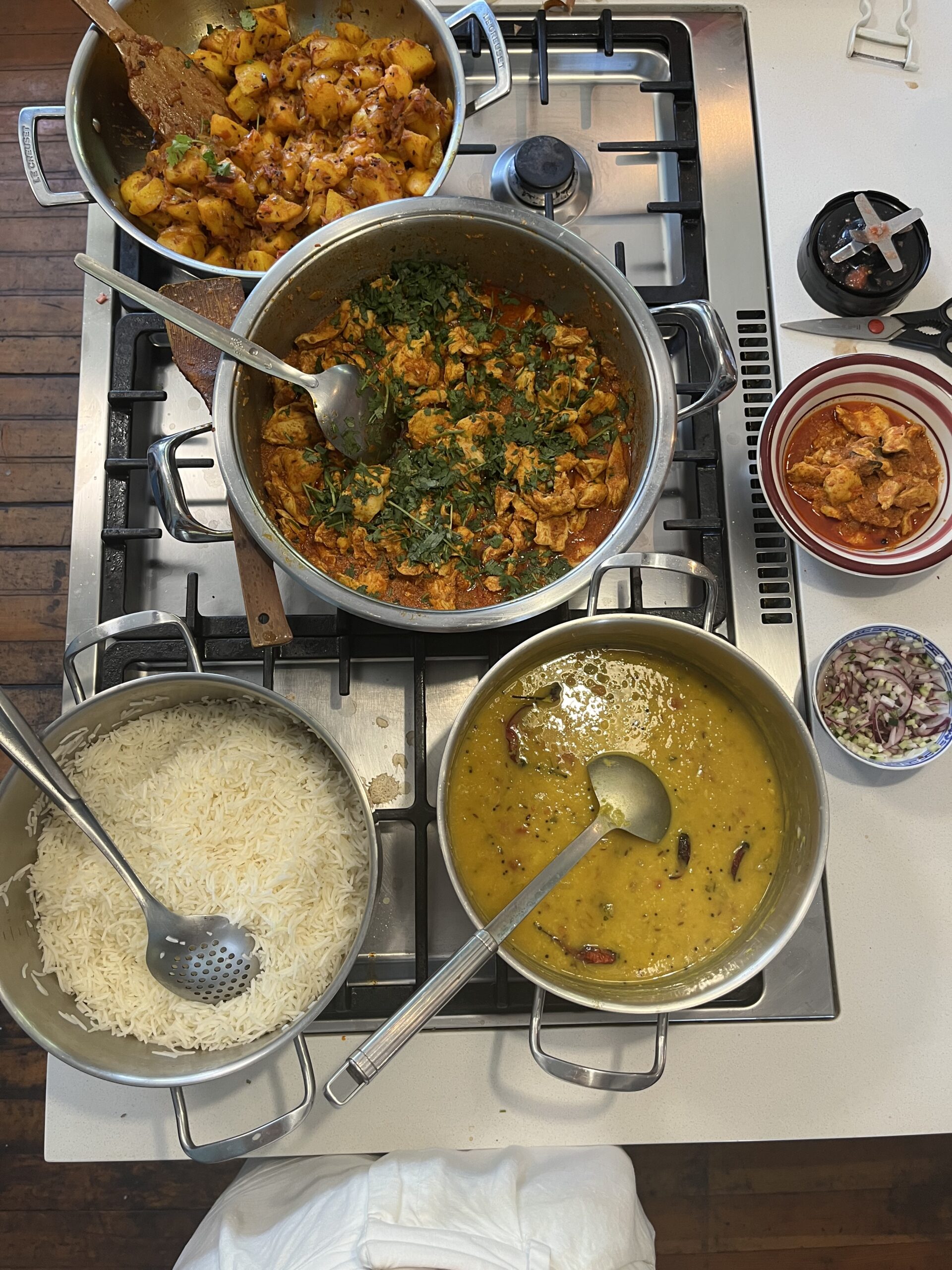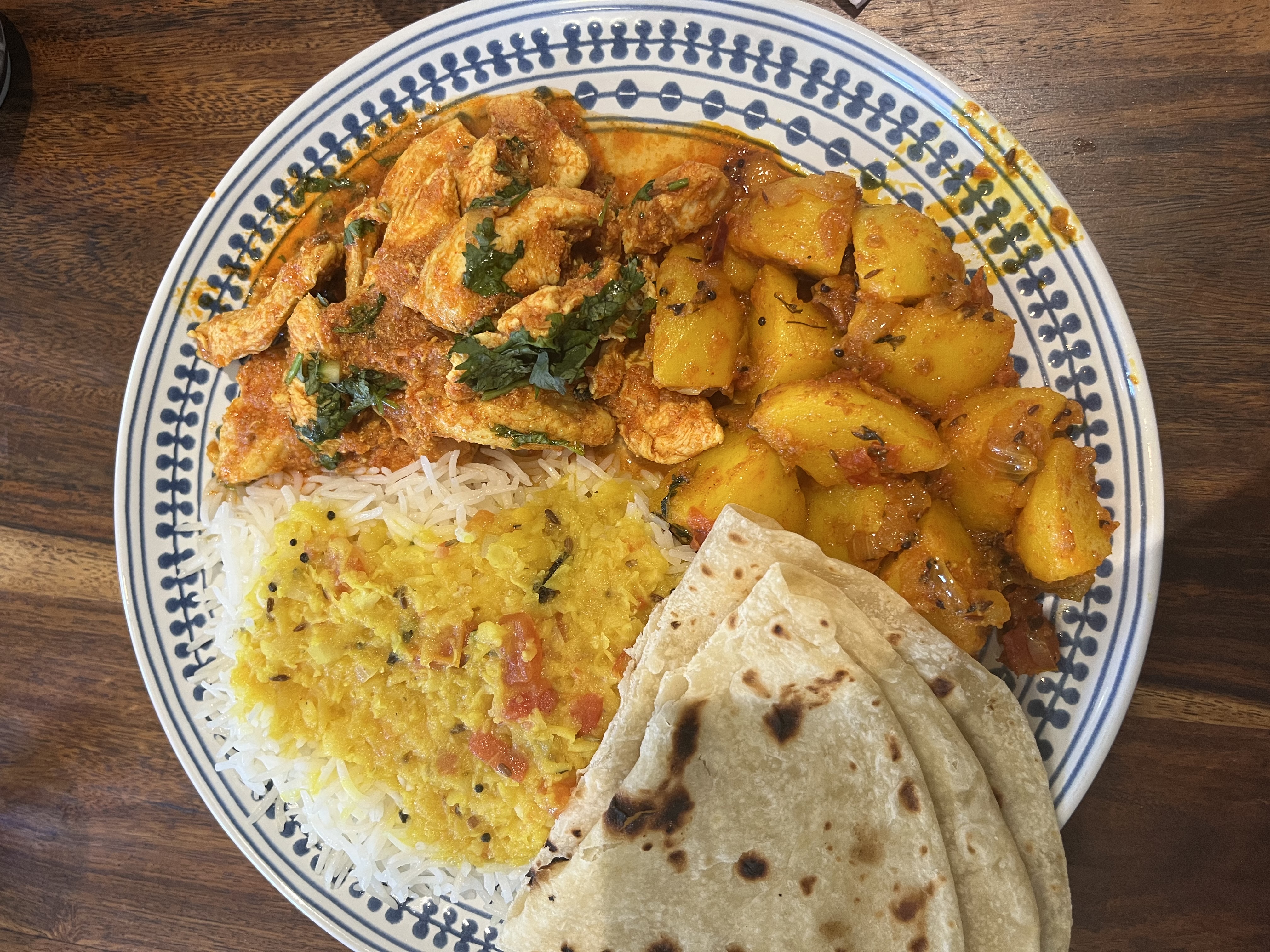
Cooking & Growing
This past week, we were granted the opportunity to participate in an Indian cooking class, hosted by one of the best Indian chefs in Cape Town. We originally found the contact information of the chef through his restaurant which used to be one of the most successful Indian restaurants in Cape Town. However, the restaurant shut down due to the economic turmoil of Covid- 19 because its primary source of income stemmed from tourism and travel. Moving forward, within the cooking class we explored a variety of cultural Indian dishes, including chai tea, a traditional lentil stew, chicken tikka masala, and a seasoned rice dish. The chai tea was made from a variety of spices, milk, cinnamon, and sugar, and it tasted amazing. The texture of the tea was incredibly smooth and there was a settle kick from the spices. Moreover, the lentil stew contained two different split lentils: an orange one and a yellow one. It also included chopped garlic, onion, parsley, and some other spices. Personally, the chicken tikka masala was my favorite dish. It was incredibly flavorful and the cooking process was very engaging. The chicken was chopped into several fine pieces, and cooked thoroughly. We also made the masala sauce by mixing blended tomato juice with sauteed onions and other herbs. Lastly, the rice dish was the most simple part of the cooking process because it required the least amount of steps. We simply soaked the rice before adding it to boiling water with an assortment of Indian spices and ghee. Overall, the meal was more than delicious and provided us with a fulfilling experience that centered around the Indian culture in South Africa.
More specifically, the cooking class allowed us to gain a sense of cultural competency and really master our teamwork capabilities. In fact, South Africa is home to over 1 million people of Indian descent, and its diverse Indian population is primarily concentrated in the city of Durban. The Indian culture is present all over South Africa and we simply got a small taste of it in our cooking class. The use of traditional spices and flavors truly immersed us within the culture, and the communal aspect of the meal allowed us to work together efficiently. We ended up dividing the tasks up and really went where we were needed the most. Being able to cook together and reaping the benefits at the end of the cooking process truly brought us together in a way that encouraged us to learn about each other and the Indian culture present within South Africa.

